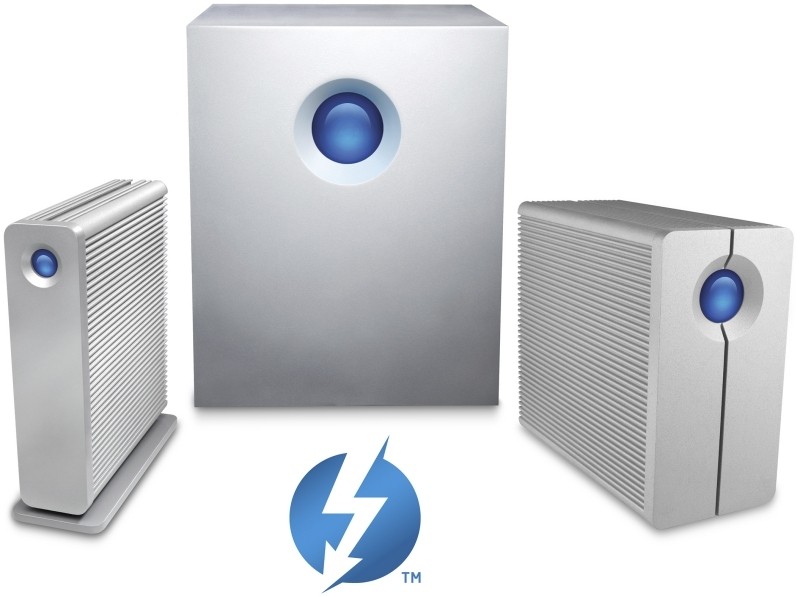LaCie on Thursday became the first company to ship a 5TB, 7,200 RPM external hard drive. The drives are available in an array of external storage enclosures including the 5big Thunderbolt Series, the 2big Thunderbolt Series and the d2 Thunderbolt Series as outlined in a press release on the matter.
The new external storage products range in size from 5TB single drive systems to 25TB RAID solutions and as the series names suggest, they connect to PCs and Macs via a speedy Thunderbolt connection.

The enclosures in question use new Seagate hard drives featuring Shingled Magnetic Recording technology which came about because they were simply unable to shrink the head and tracks on the platters any more but still wanted to increase storage capacity. The tech allowed Seagate to increase 3.5-inch platter density from 1TB to 1.25TB which made these 4-platter, 5TB drives a reality.
The 25TB enclosure is one of the highest-capacity setups available with just five drives but as you might have guessed, it comes with a pretty hefty price tag attached - $2,499. That’s a lot to ask for the average media buff but the space savings alone could be enough to get the attention of video editors and photography professionals.
If that’s a bit too much coin to spare, the d2 with 5TB of storage will only set you back $449 (or $299 for the 3TB model).
